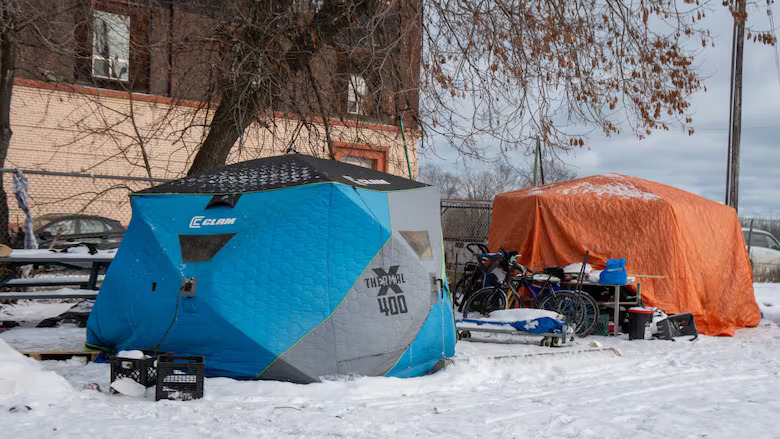Ontario’s Homelessness Crisis Deepens as Spending Stagnates, Report Reveals
A new report from the Maytree Foundation reveals that Ontario’s spending on homelessness and low-income housing has remained stagnant over the past decade, even as the crisis continues to escalate. The report, which analyzes publicly available spending data, highlights a growing disconnect between the province’s investments and the worsening homelessness problem.
The report draws on data from Ontario’s Financial Accountability Office and a recent study by the Association of Municipalities of Ontario (AMO), which found that more than 81,000 people in Ontario were homeless in 2024—a 25% increase over two years.
Ontario needs to invest $11 billion over the next decade to address the crisis effectively. The foundation argues that the province must prioritize building affordable and supportive housing rather than relying on the private sector to fill the gap.
The report also highlights the growing number of people experiencing long-term homelessness, which White describes as a “canary in the coal mine” signaling a worsening crisis.
As Ontario’s political parties campaign ahead of the provincial election, homelessness has emerged as a key issue. Each party has proposed its own plan to address the crisis, though their approaches vary significantly.
- Progressive Conservatives: The PC Party, led by Doug Ford, has pledged 3 billion over three years for affordable housing.
- Liberals: Liberal Leader Bonnie Crombie has shared personal stories about her father, who experienced homelessness, and has committed to building more housing and enhancing addiction services. However, the party has yet to specify how much it would spend on these initiatives.
- NDP: NDP Leader Marit Stiles has announced a plan to build 60,000 supportive housing units, upload shelter costs from municipalities to the province, and provide housing benefits to help people transition from shelters to permanent homes. “Homelessness is about housing,” Stiles said.
- Green Party: Green Leader Mike Schreiner has promised to build 310,000 affordable homes, including 60,000 permanent supportive housing units, at a cost of $2.75 billion over four years.
Municipal leaders have also sounded the alarm. AMO President Robin Jones, the mayor of Westport, Ont., warned that the province is at a “tipping point” and called for concrete action to address the crisis.
“Without concrete action, it is only going to get worse,” Jones said.
The Maytree report underscores the urgency of the situation, noting that homelessness is not only increasing but also becoming more prolonged for many individuals. White urged the next provincial government to prioritize long-term solutions over temporary measures.
“More and more people are not only homeless but are staying homeless for long periods of time,” White said. “That’s really the canary in the coal mine, suggesting that things are going to get a lot worse, really quickly.”
As the election approaches, the question of how to address Ontario’s homelessness crisis remains a central issue, with voters looking for meaningful action from their leaders.

